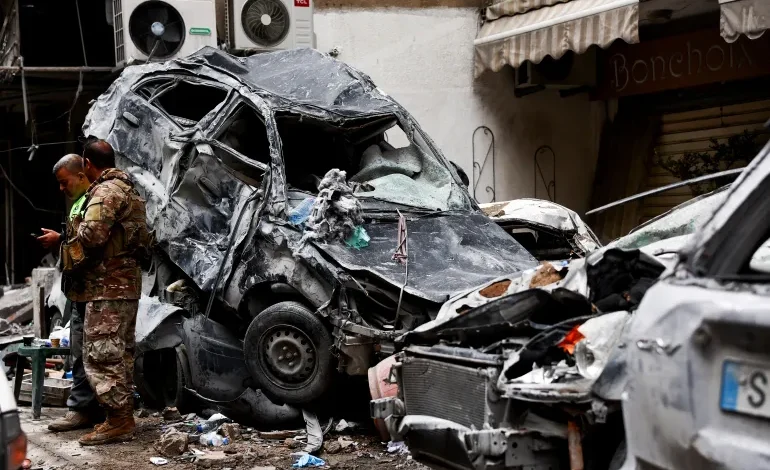Ceasefire Talks Near, But Israeli Air Strikes Continue to Devastates Lebanon

Despite claims of imminent progress towards a ceasefire, Israel launched a fresh wave of air strikes across Lebanon on Monday, killing at least 12 people and further devastating already war-torn cities, Al Jazeera reports.
The attacks, which hit residential and commercial buildings in Beirut and Tyre, bring the total death toll in Lebanon since the conflict began in October to over 3,768, according to the Lebanese Health Ministry. Over one million Lebanese have been displaced.
The escalation comes as Israeli officials suggest a ceasefire agreement with Hezbollah could be finalized “within days.” Israeli Ambassador to the US, Mike Herzog, indicated that while some details still need to be resolved, a deal is within reach, pending government approval. A meeting of Prime Minister Benjamin Netanyahu’s security cabinet is scheduled for Tuesday to discuss the proposed ceasefire.
However, Ambassador Danny Danon, Israel’s representative to the UN, clarified that any agreement would not restrict Israel’s ability to strike southern Lebanon. This condition has previously been a point of contention with Lebanon.
The US has actively mediated the negotiations, attempting to end over a year of escalating conflict between Israel and Hezbollah, a conflict that intensified dramatically in the past two months. The proposed US-brokered deal reportedly involves an Israeli military withdrawal from southern Lebanon within 60 days, with the deployment of Lebanese soldiers to the border region – a long-time Hezbollah stronghold. A five-country committee, chaired by the US and including France, will reportedly monitor compliance.
Lebanon’s Deputy Parliament Speaker, Elias Bou Saab, stated that few obstacles remain to implementing the ceasefire, blaming Israel’s intensified bombardment on an attempt to pressure Lebanon into concessions. He accused Israel of escalating the violence as a tactic in the final stages of negotiations. He expressed optimism, but cautioned that Netanyahu could still alter the course of events.
Despite the reported progress, significant hurdles remain. US officials warn that last-minute complications could still derail the agreement, mirroring past instances where hopes for a ceasefire were dashed. While the French presidency reported “significant progress,” National Security Minister Itamar Ben-Gvir, a far-right member of Netanyahu’s cabinet, openly opposes the deal, calling it a “big mistake” and a missed opportunity to eliminate Hezbollah.
The weekend saw particularly intense fighting, with Israel carrying out powerful attacks – one killing at least 29 in central Beirut – and Hezbollah launching one of its largest rocket barrages yet, firing 250 missiles into Israel. In the current conflict, Hezbollah strikes have killed 45 civilians in northern Israel and the Golan Heights, while Israeli authorities report at least 73 Israeli soldiers killed in northern Israel, the Golan Heights, and southern Lebanon.








